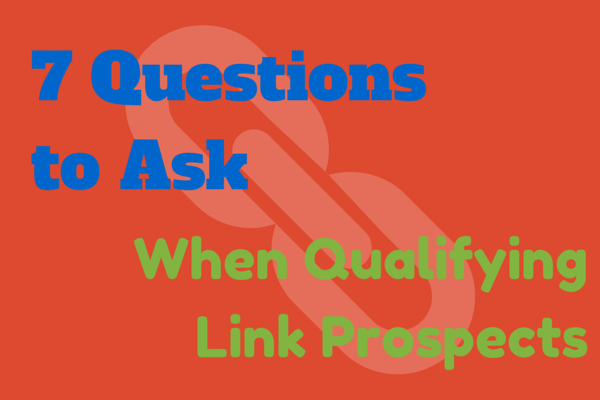Do you qualify your sales leads? Of course you do. You want to avoid wasting your sales team’s valuable time. When performing outreach you also need to qualify your link prospects.
When I use the term “link prospects” I am including advertising prospects as well. I don’t care if a link is paid for or not, or if it is followed or nofollowed. What I do care about is the ROI from that link. Does it help me achieve my business goals?
1. Does their target market match your target market?
This is perhaps the most important question to ask. If a site’s target market does not match your own then your time is better spent focusing on sites that are more in line with your business goals. When requesting a media kit ask for demographic information if it isn’t provided. Understanding what groups of people are most likely to convert on your site will help you focus your outreach efforts.
2. What is their site’s reach/popularity?
In determining the importance of one link prospect over another, it is vital to estimate their reach. If a site’s reach is small, check how fast they are growing. A brand name search in Google Trends is a helpful tool for this task. When you find a small site that is growing rapidly in popularity build that connection while the site is young. This will create a more meaningful and trustworthy relationship. You were there when they hadn’t yet made it big. When they do, guess who’s products & services they will mention more often?
3. What is their reach on the major social media platforms?
A link or mention on a relevant site is good. That link being shared across major social media platforms is even better. To get even more value from your link prospects check to see if they are using the same platforms that you are. If your target markets are similar and you’ve both done your homework then the sites should be targeting the same social platforms as your business.
4. Do they have create high quality content?
You want your business to be associated with quality. As search engine algorithms improve this will become even more important for ranking purposes. For branding purposes, being associated with quality blogs and other sites will increase the value of your brand from a customer’s perspective. Quality content will continue to perform well online, which will increase the life of your investment of time and money.
5. If looking at advertising, how long do advertisers stay with the site?
To discover this information I use the Wayback Machine. It’s currently the closest thing we have to time travel and it’s a great tool if you know how to use it. This is off topic for this post, but since I’m discussing the Wayback Machine, I also use it to look at competitor’s calls-to-action over time. This is especially helpful if you know that a competitor frequently runs conversion rate optimization tests.
6. Are bloggers featured on larger sites like Details or Huffington Post?
If you’re looking to find bloggers that have a large reach try looking in relevant categories on large news sites. If looking for travel bloggers, check out Huffington Post’s travel section. You’ll often find that many featured writers also have their own personal blogs. Asking to be featured in Huffington Post can be a long shot for many. Start lower down the food chain and work your way up.
7. Do you have something equally valuable to offer?
If the answer is no, you are going to have a lower response rate. Know what your value proposition is before reaching out to a blogger. If you really don’t know what you could offer them of value, yet still really want a link, don’t be afraid to ask how you can help them reach their goals as well. Be creative. Perhaps they would like to do a collaboration with a smaller brand in order to work with larger brands in the future. Don’t be too proud to be their stepping stone to something better.
What questions do you ask when qualifying link prospects?
